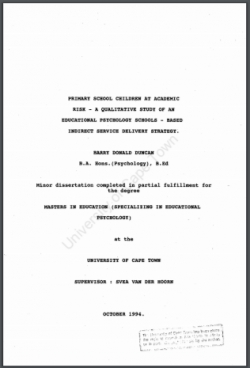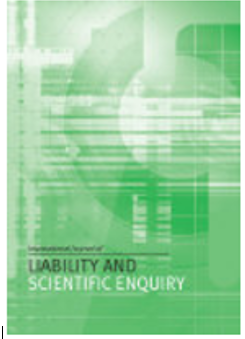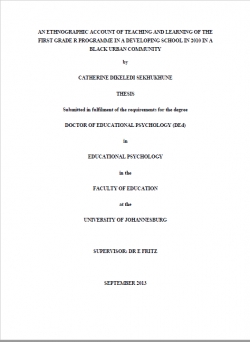School Psychology International, 34(1):51-66 Educational psychology and resilience in developing contexts: a rejoinder to Toland and Carrigan (2011)

Type
E-Journal
Authors
Category
ECCE, Foundation, Intermediate
[ Browse Items ]
Publication Year
2013
Publisher
SAGE Journals, Thousand Oaks, CA, United States
URL
[ private ]
Pages
16 p.
Subject
Early childhood education, Primary education, Secondary education, Developing context, Ecosystemic, Educational psychologist, Resilience, Transactional, South Africa
Tags
Series Name
Abstract
If educational psychologists wish to make a meaningful difference as practitioners, both to the children they work with and the ecologies these children come from, then, knowledge and application of resilience theory is crucial. Toland and Carrigan (2011) underscore this relationship in their 2011 article in this Journal. In our contribution below, we extend their assertion by urging greater attention to the interactive processes which underpin resilience and, more particularly, to how proximal, face-to-face transactions embedded in mesosystems and microsystems and nuanced by the distal, macrosystemic influences, mould resilience. Using examples from resilience research conducted in South Africa we argue that such a focus (i.e. on the transactional ecosystemic nature of resilience) is crucial in developing contexts. Furthermore, we contend that sensitivity to mechanisms of resilience as well as the contexts and cultures in which these continuously evolve, begs an approach to practice that foregrounds the ecosystemic, promotes child-ecology transactions, and is cautious about generalizing resilience theory to children across diverse contexts, cultures and time periods. To conceptualize resilience as anything but a reciprocal, dynamic, contextually-influenced interaction between children and their ecologies, would be to fail children in developing contexts.
Number of Copies
1
| Library | Accession No | Call No | Copy No | Edition | Location | Availability |
|---|---|---|---|---|---|---|
| 1 | Thousand Oaks, CA | Yes |


